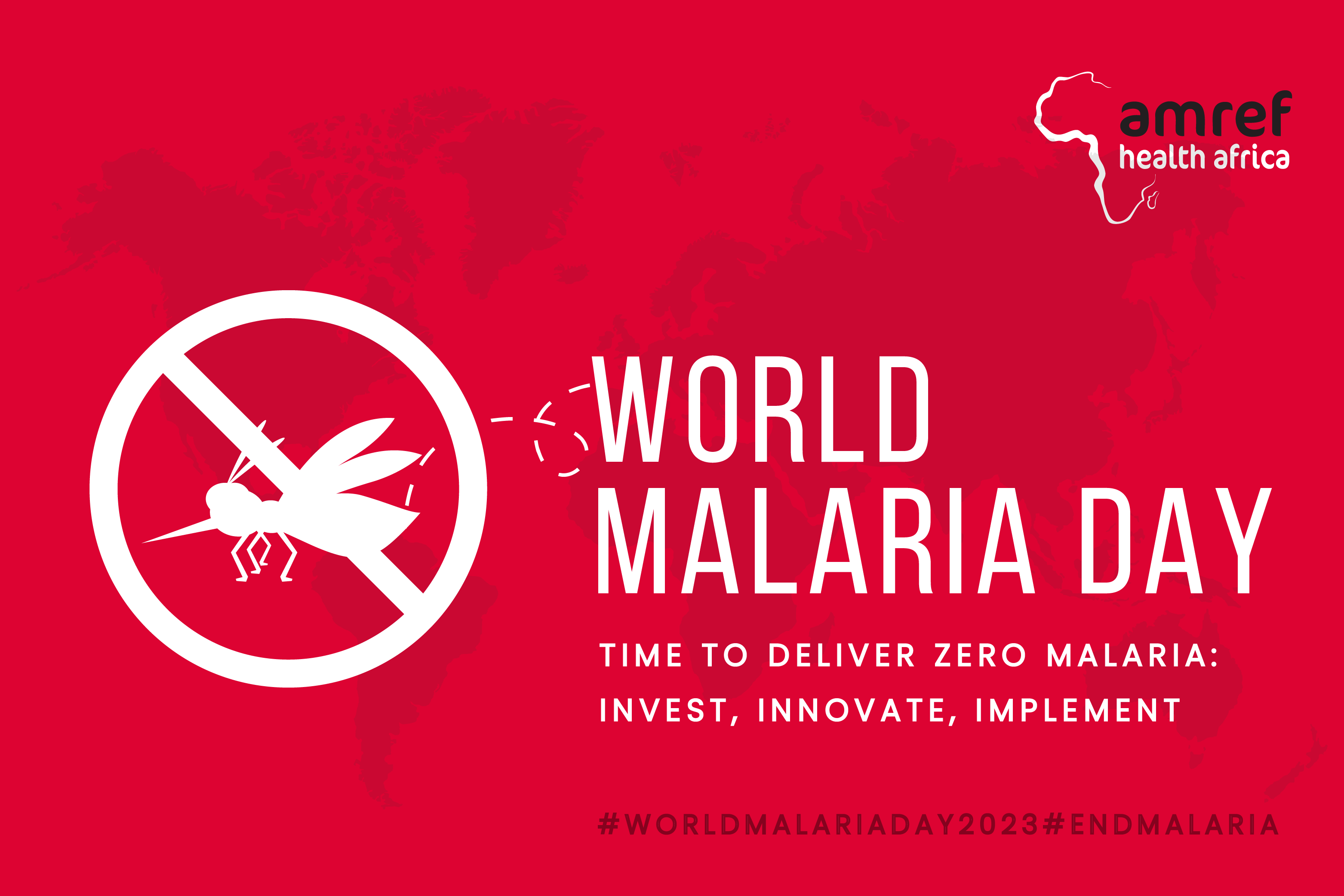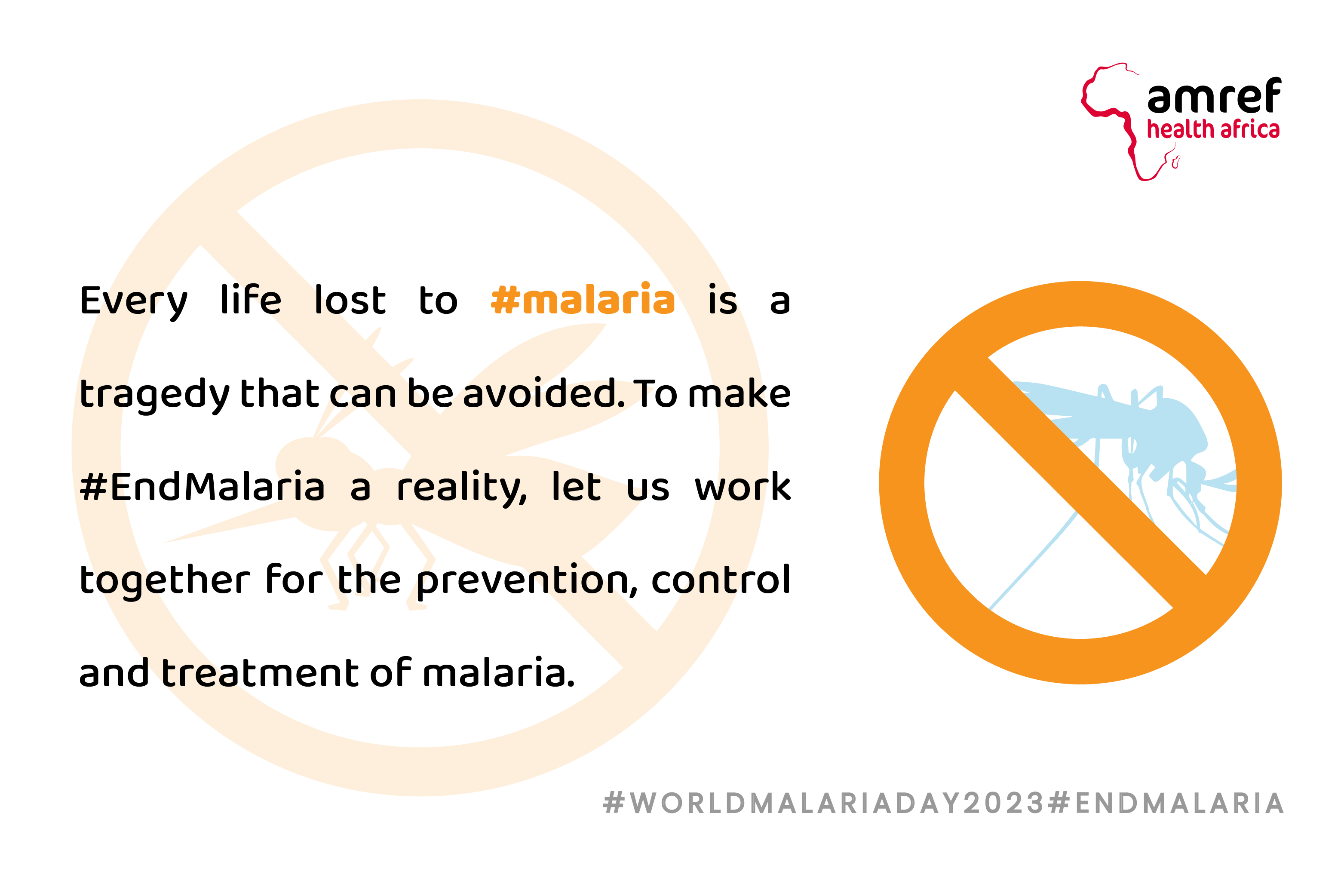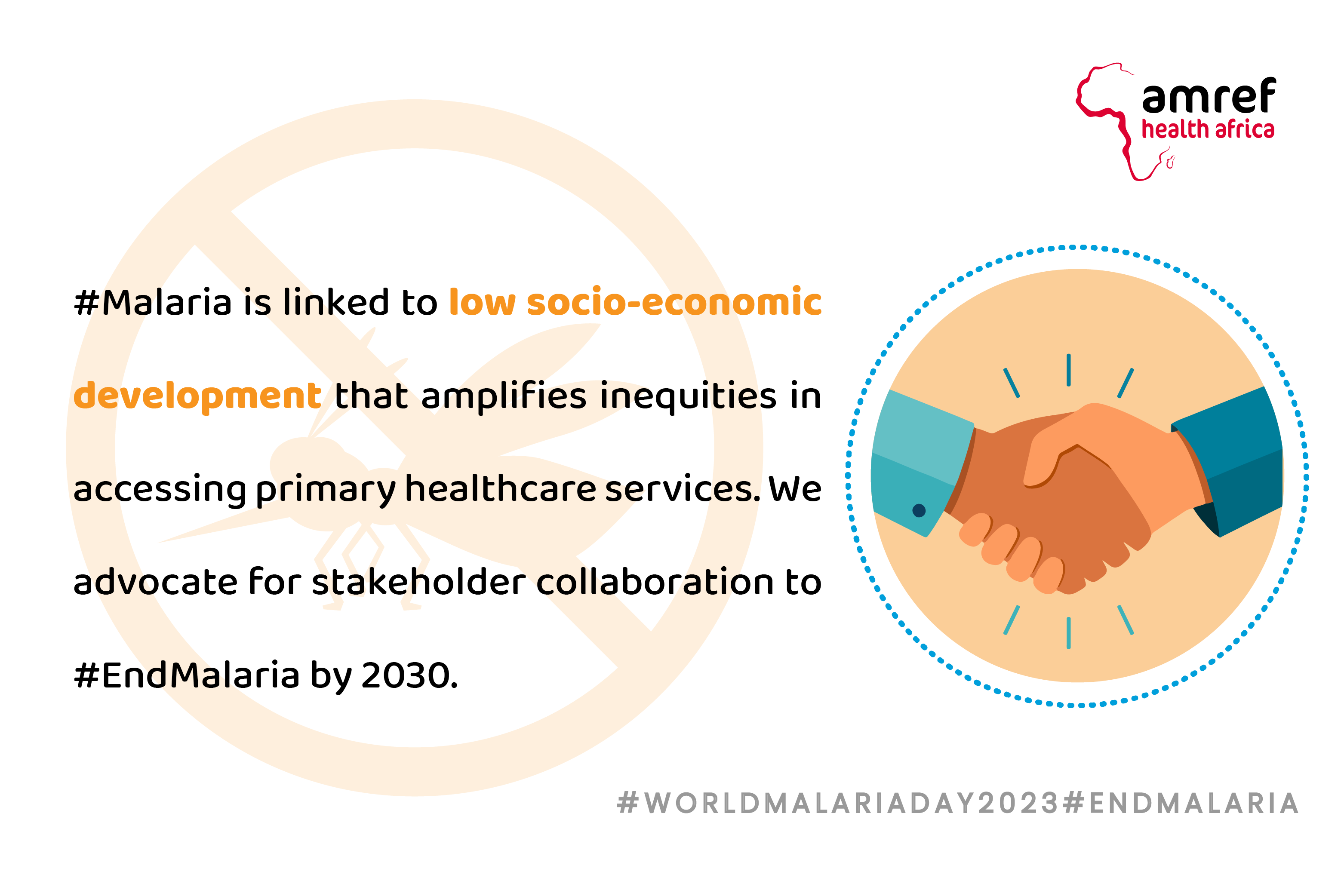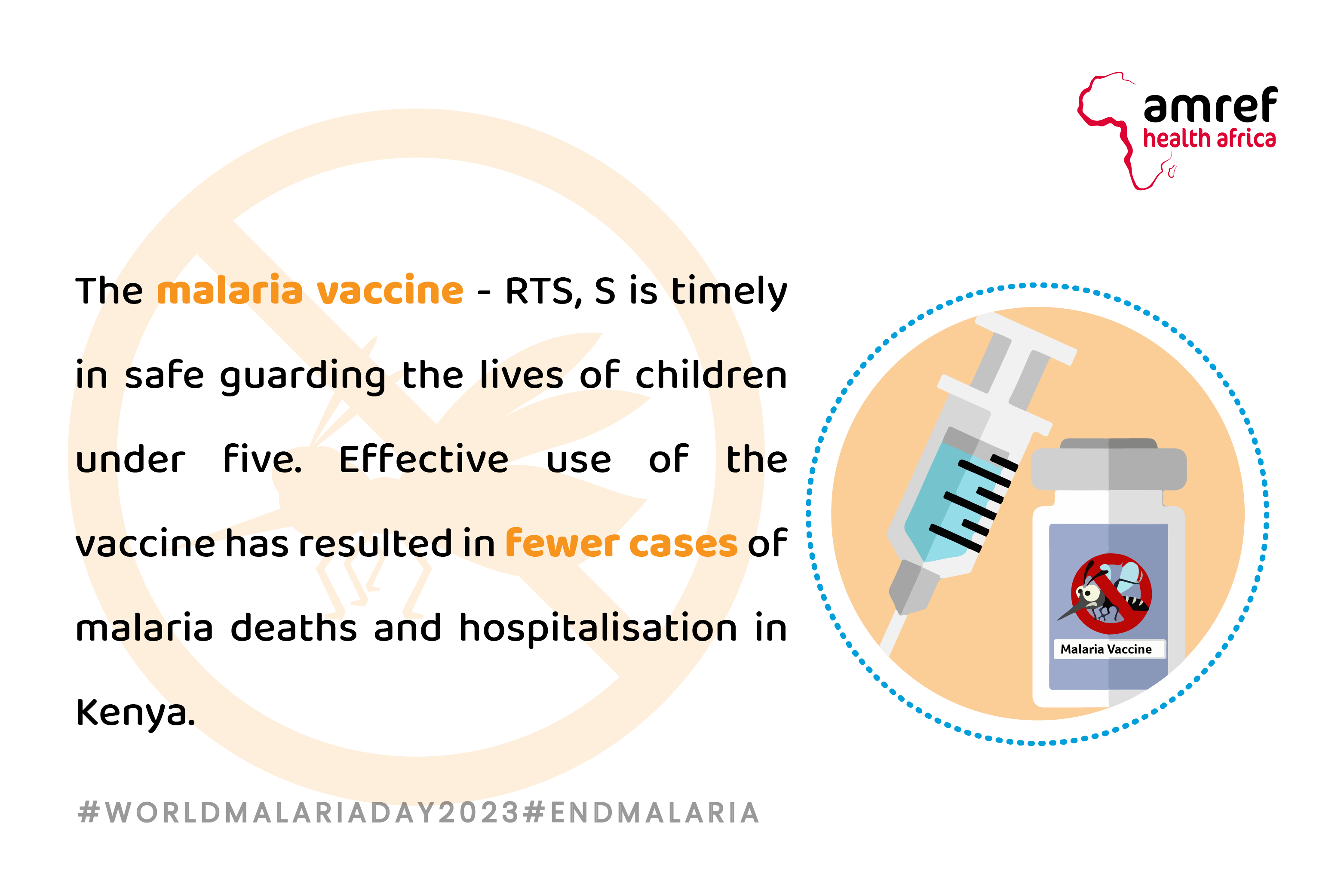World Malaria Day, 2023
25th April 2023
Theme: Time to Deliver Zero Malaria: Invest, Innovate, Implement
The World Malaria Day, 2023 themed “Time to Deliver Zero Malaria: Invest, Innovate and Implement” emphasizes the progress made in the fight against malaria and calls for the urgent need to increase investments in innovative mechanisms to help end malaria by 2030. Working with our partners, we continue to advocate for stronger political commitment to end malaria in Africa, while also supporting rollout and use of the core malaria control tools.
Share facts about #WorldMalariaDay2023
These communication tools are available to share and print during the World Malaria Day. Feel free to display and/or distribute on social media. On Twitter please tag @Amref_Worldwide when posting graphics from this social media toolkit.
# Primary Hashtags
#WorldMalariaDay2023
# Secondary Hashtags
#EndMalaria
#ZeroMalariaStartsWithMe
Key Messages and Tweets
An estimated 475,000 children under the age of five died of malaria in the World Health Organization (WHO) African region in 2021. That’s around three-quarters of the worldwide total of lives lost to the disease – one of Africa’s biggest killers.
Since 2000, the global death toll has fallen by almost a third thanks to the use of mosquito nets, insecticides and drugs. The addition of the world’s first malaria vaccine – RTS, S/AS01e, developed and manufactured by GlaxoSmithKline (GSK) – could prevent the deaths of tens of thousands of children every year.
Every life lost to #malaria is a tragedy that can be avoided. To make #EndMalaria a reality, let us work together for the prevention, control and treatment of malaria.
#Malaria is linked to low socio-economic development that amplifies inequities in accessing primary healthcare services. We advocate for stakeholder collaboration to #EndMalaria by 2030.
#Malaria funding fell short by $3.8 billion due to the worldwide economic landscape. Eradication of malaria requires better targeting of funds through investment, innovation, and implementation. [World Health Organization]
The theme for #WorldMalariaDay2023 is, “Time to Deliver Zero Malaria: Invest, Innovate and Implement” emphasises the need to invest in well-functioning health systems with a focus on primary healthcare, especially in last mile communities.
With support from @GlobalFund we continue to implement Community Case Management of Malaria (CCMm) and train Community Health Workers (CHWs) to support the delivery of CCMm services in malaria-endemic areas like Bungoma and Busia counties in Kenya.
Multi-sectoral partnerships are central to eradicating #malaria. We continue working jointly with our partners’ like @MOH_Kenya to develop a registry of CHWs, to help deploy new PHC strategies premised on primary healthcare networks to #EndMalaria in Kenya.
The malaria vaccine - RTS, S is timely in safe guarding the lives of children under five. Effective use of the vaccine has resulted in fewer cases of malaria deaths and hospitalisation in Kenya.
With support from Global Fund, we continue to build the capacity of communities with key interventions to #EndMalaria- through community case management - a life-saving intervention.
Global investments in research and development create innovative tools for #malaria prevention and control like rapid diagnostic tests and insecticide nets that will help eliminate malaria by 2030.
In Kenya, children under the age of five are more vulnerable to contracting #malaria. Amref Health Africa seeks to address inequitable access to primary healthcare services among key vulnerable populations through community-led systems strengthening.
In collaboration with @GlobalFund, we have created a malaria matchbox assessment tool. This tool mapped Kenyan Civil Society Organizations to help in meaningful dialogue and coordinated efforts with all stakeholders to #EndMalaria in Kenya.
To prioritize ending #Malaria in the country, we are committed to strengthening the institutional capacity of 9,000 health facility management committees in all 47 counties to improve equitable access to healthcare services for all.
The need for multi-stakeholder partnerships is urgent now more than ever to help reach the global targets of reducing malaria incidences and mortality rates by 90% in 2030. We need to reach malaria endemic regions with timely interventions to reduce the risk of malaria mortality and morbidity.






